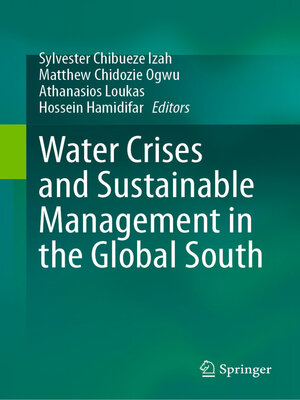Water Crises and Sustainable Management in the Global South
ebook ∣ Biomedical and Life Sciences
By Sylvester Chibueze Izah

Sign up to save your library
With an OverDrive account, you can save your favorite libraries for at-a-glance information about availability. Find out more about OverDrive accounts.
Find this title in Libby, the library reading app by OverDrive.



Search for a digital library with this title
Title found at these libraries:
| Library Name | Distance |
|---|---|
| Loading... |
This book is a reference material on how to sustainably manage water crises. The causes and effects of water crises under different regions in the Global South are explored in this book. Approaches for the sustainable management of water crises are also highlighted in the book, especially in the Global South, where the level of technologies available for sustainable management of water are limited.
Water crisis is a global problem but with disproportionate higher consequences in the lobal South. About 25% of the global population resides in water-stressed countries, and about 10% of the world population lives in areas with high water vulnerability. Furthermore, many millions of people across the globe lack access to potable water supplies. As such, many people could be displaced by water crises or scarcity shortly. The effects of the water crisis on the environment include increased salinity, nutrient pollution, the loss of floodplains, the drying ofriverbeds, the loss of habitat, wetlands disappearing, and ecosystem loss. On the human level, it could lead to disease outbreaks, drought, famine, and death. This may have more severe effects in countries in the Global South as compared to nations in the Global North. This is because the water cycle is very intense in Asia and Africa, which are important areas in the Global South.
This book is of interest and useful to aquatic toxicologists, water quality experts, practitioners, trainees, and trainers, environmentalists, biological sciences scientists, academics, researchers, students (especially undergraduates and postgraduates), libraries, and other public knowledge repositories interested in novel and advanced practices in sustainable water management.







